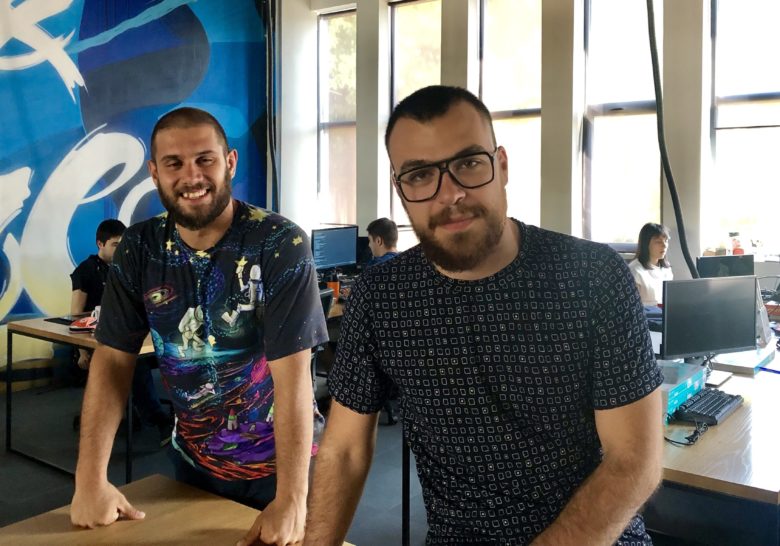How The Failure Of Our Product Led Us To A More Fulfilling Service Business

Bozhidar Georgiev and his colleague Plamen Penev went out fresh of the university where they studied International Relations and Affairs with a clear idea. They wanted to do something with big data and solve important problems. They first wanted to move something in politics, then in media, and eventually on the financial market. None of this really happened the way they planned it. They went to one of the top European accelerators, built and then almost lost their team.
“If I have to outline the two most important lessons I learned from this first failure, they would be, first: don’t say “yes” to everything a potential customer wants – chances are that you will be unable to deliver everything that comes to their mind. And secondly, well related to the first one, learn what information to give to your team. Around 80% of the requests, regardless of how exciting they might sound to your people, won’t turn into real features or at least no one will really pay for them,” tells us Georgiev.
Learning it the hard way
The co-founders learned this the hard way while building a product startup called Yatrus Analytics. It was founded in 2015 with the idea to spot in real-time rising relevant topics and breaking news that affect businesses and timely deliver those insights to decision-makers.
Around this time the co-founders applied and got accepted to the first season of pre-acceleration program Founder Institute in Bulgaria. “I will probably never forget what I heard during our first presentation. The jury and mentors totally smashed us. ‘How can you build a product in an isolated room without asking the market whether someone would ever pay?’ or ‘Have you ever had any contacts on the financial market, do you have any idea how it works?’ Well, we didn’t,” recalls Georgiev. All this was ahead to learn. Yet the co-founders didn’t give up on their big data company dream.
Initially designed for investment managers and government officials, it actually developed as a product for media publishers – it crawled social media posts, mostly tweets, and other web sources, and pushed notifications about relevant topics. And with this idea, the next year Yatrus got accepted as one of the 5 among 120 for the biggest European media tech accelerator – The Next Media Accelerator in Hamburg. They even received a small pre-seed investment of €50K.
Everything’s possible…No
For the six months Georgiev has spent in Hamburg, he got to know and worked with potential clients like Spiegel and Bild, one of Germany’s best-established publishers. They even had talks with the Deutsche Presse Agentur and started pilots with some of the smaller news outlets. By the time the team grew to 17 people – financed partially through the investment, partially through own savings of the founders (Bozhidar Georgiev also develops one co-working space called Work& Share – ed.n.).
Blinded by the many open opportunities in Germany, Georgiev promised everything to the companies he was negotiating with. “My first sales mistake was to say – yes, everything is possible,” he says. As it turned out, not only it was not possible, but they’ve burned the cash trying to fit into every client’s fantasy, and the team had to be scaled down to three people, Georgiev and Penev had to start a side business to finance Yatrus.
Cooling down the startup enthusiasm to do real business
And so StageAI was born. “The idea was to still use big data and develop dashboard analytics solutions, what we wanted to do anyway,” tells us the founder. Even though their product Yatrus is still alive and out there, with the time Georgiev and Penev shifted focus towards building products alongside with their clients, not on their own. They also changed the vertical and are now developing smart city IoT solutions for the CEE market.
The project called Sunshine came through Latvian partners who had won a project to develop a platform that had to track the energy efficiency in newly renovated buildings. It was a project of an energy fund, and Stage AI became a partner sharing the intellectual property of the product. In a consortium, together with the same fund and eight other regional players, Georgiev and Penev soon got to scale this project, under the brand Finergodom. They’ve built a multi-stake platform that allows banks, landlords, construction businesses and of course energy companies to track whether a building was renovated right and reached it’s efficiency KPIs. The consortium recently received €1.6M from the European Commission to scale it and is now starting pilots with the energy agencies with Slovakia, Poland, and Austria.
Back on track
With another client – an energy retailer, Stage AI built an energy management platform for everything from planning to billing. “It grew as our product and we hold the IP. Now we are planning to implement the same technology in the water utility sector,” Georgiev explains. Meanwhile, the co-founders managed to grow their team again to 12 people, and generate enough revenue to sustain it, and plan growth ahead.
“We want to build smart city solutions – mainly in the water and electricity utility segments. Data analytics and dashboard solutions are our specialties and they have so many potential implementations. We also have experimental projects with road sensors that track occupancy and allows people to pay for parking through a smartphone,” Georgiev gives a hint.
In the longer run, the founders hope to develop the company to a business that also supports governments and municipalities to optimize infrastructure and work in public-private joint ventures. For now, however, they are planning to grow their team with sales capacity, continue to penetrate the CEE markets, and be profitable, before storming into another venture, for which they lack the preparation.

Read also:
How To Fail, Learn To Separate Business From Your Personality And Move On To The Next Big Thing




























